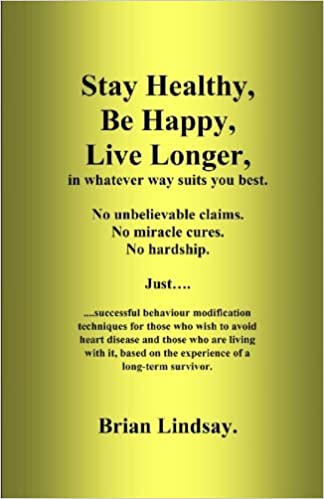
It can be difficult to live a healthy life while studying. A tight budget, late nights, work commitments and tight schedules can all impact your health. These are some health tips that students can use to prevent these negative consequences. Keep in mind that the above tips are not meant to replace a healthy diet and exercise program, but should serve as a guide to keeping a healthy lifestyle while studying. These tips are important, so read on.
Exercise lowers the risk of getting sick
Exercising can have many benefits for your health, including reducing your risk of developing illness. Exercise can help your body release neuroprotective hormones, which can protect your brain against disease. Exercise can also improve the function of your heart, and immune system. These benefits will help you stay healthy. Exercise is a must-do! These are just a few of the many ways exercise can improve your physical health.
Healthy diet improves memory
Fish, seafood, nuts, whole grains, and fatty fish can all help improve memory. All of them contain folic acid which is essential for brain health. Eggs are a good source of vitamin B12 (lecithin) and choline (a vital building block of neuron cells). Fish contains high levels of omega-3 Fatty Acids, an essential nutrient to brain cells and oxygen transportation. Consuming seafood can even help prevent Alzheimer's disease.

Meditation reduces stress
One study shows that students who meditate regularly experience less stress. The study involved music majors who were invited to participate in a 10-minute guided meditation every day between classes. The researchers asked students at Temple College and Texas A&M University-Central Texas to come in for the mediation sessions daily. During November, one of the busiest months for students, the study found that those who practiced meditation significantly reduced their stress levels. Shamatha meditation was particularly noticeable.
Drinking alcohol can cause serious health problems
A college student may experience the long-term health effects of drinking alcohol. Studies have shown that over 150,000 college students experience alcohol-related problems each year. These include minor cuts, broken bones and concussions. The likelihood of becoming dependent on alcohol increases the more you drink. You can also become analcoholic in college. Bad habits and drinking habits may lead to alcoholism later on.
Avoiding head lice
Your child should not share any personal items with you, such as hats or caps. Students should also avoid personal items, such as headphones, pillows, and car seats that may come in contact with their heads. Lice can also live on personal items, so parents should inspect their child's hair. They should regularly inspect their child’s head for nits or live lice.

FAQ
If I feel depressed, is there anything wrong?
Teens often struggle with depression. It is important to recognize that depression affects many teens.
It doesn't mean you are insane or weak. People who are depressed don't know it. Depression is a medical condition.
There are many types of depression. Some people feel only sadness. Others experience other emotions. There are many levels of severity.
Some people are mildly depressed while others experience severe depression. Depression is not always bad. Sometimes, depression can be helpful in coping with stressful situations.
If you are constantly feeling sad, tired, or demotivated, it's a good idea for you to visit a doctor. Your doctor will diagnose you and recommend treatment.
What are some examples of mental-emotional problems?
Any condition that causes serious distress or impairment of functioning is known as mental disorders. Examples of mental disorders include depression, anxiety, bipolar disorder, schizophrenia, borderline personality disorder, obsessive-compulsive disorder, post-traumatic stress disorder, eating disorders, substance abuse, and others.
Why is it important that students have a healthy mind?
Students need to feel good about their mental health in order to be able focus on school and succeed academically. Without feeling like yourself, you will not be able perform well at school. Students with depression frequently miss class which can lead to low grades. This could result in students dropping out high school and possibly even college.
Parents and teachers should be consulted if you are suffering from depression. These people will be able help you receive the care that you require.
It's important to note that not everyone who struggles with depression needs medication. Talk therapy can be very effective for many people. A counselor is a great option for anyone who wants to seek help.
What is the impact of mental health on our daily lives?
Mental illness affects everyone at some point in his life. There is one major difference between people with mental illness and those without it: they don't seek out help. Talk to someone about something you are feeling. There are many options for dealing with anxiety, depression, stress, such as medication, therapy, exercise, diet and meditation.
Why is mental wellbeing important?
Everyone's mental health is important. If you don't feel well mentally, you won't be able to do anything else. So, it is essential to maintain a healthy mind.
When our minds aren't in the best place, our bodies start to show signs and symptoms of stress. This could lead to physical problems such as headaches, stomach aches, backaches, and more. To keep our bodies and minds healthy, we must take care ourselves.
What are the five best ways to improve mental and emotional well-being?
-
Exercise - This improves brain function, and boosts energy levels.
-
Sleep - A good way to reduce anxiety and stress is to get enough sleep.
-
Nutrition - Eat healthy foods such fruits and veggies to keep your body strong, energized and happy.
-
Meditation - Meditation regularly can help reduce stress and anxiety.
-
Socialization: Spending time together with family and friends, keeps us happy.
Statistics
- More than 40 million adults in the United States have an anxiety disorder, but less than 37% of people seek mental health treatment for their symptoms. (talkspace.com)
- It means no drinking any alcoholic beverages and no taking any drugs that aren't 100% natural.
- Neuropsychiatric diseases are the leading cause of death and disability in the U.S., accounting for 18.7 percent of all years of potential lifespan loss and premature mortality.
- It does have some influence, but not nearly as much as we might think, so focusing less on attaining wealth will likely make you happier (Aknin, Norton, & Dunn, 2009); (positivepsychology.com)
- Similarly, while there is some agreement about the boundaries of typical mental disorders 2, there is likely less agreement about those for positive mental health. (ncbi.nlm.nih.gov)
External Links
How To
How to determine if one needs to seek help from a mental health expert
To help you decide if professional help is necessary, here are some warning signs. It is best to see a doctor if you spot any warning signs.
-
It's as if you feel out of control.
-
You have trouble sleeping.
-
Concentrating can cause your thoughts to race.
-
You think about suicide.
-
It is difficult to believe in your own ability to make it through.
-
You feel like you don't have enough.
-
You're losing interest in the things that you once loved.
-
You've stopped eating.
-
You have become withdrawn.
-
To cope with stress, you may have tried to use drugs or alcohol.
-
You are losing friends or family.
-
Other symptoms may include stomachaches, backaches or headaches.
In conclusion, if you notice any of these signs, then it is crucial for you to see a doctor right away.